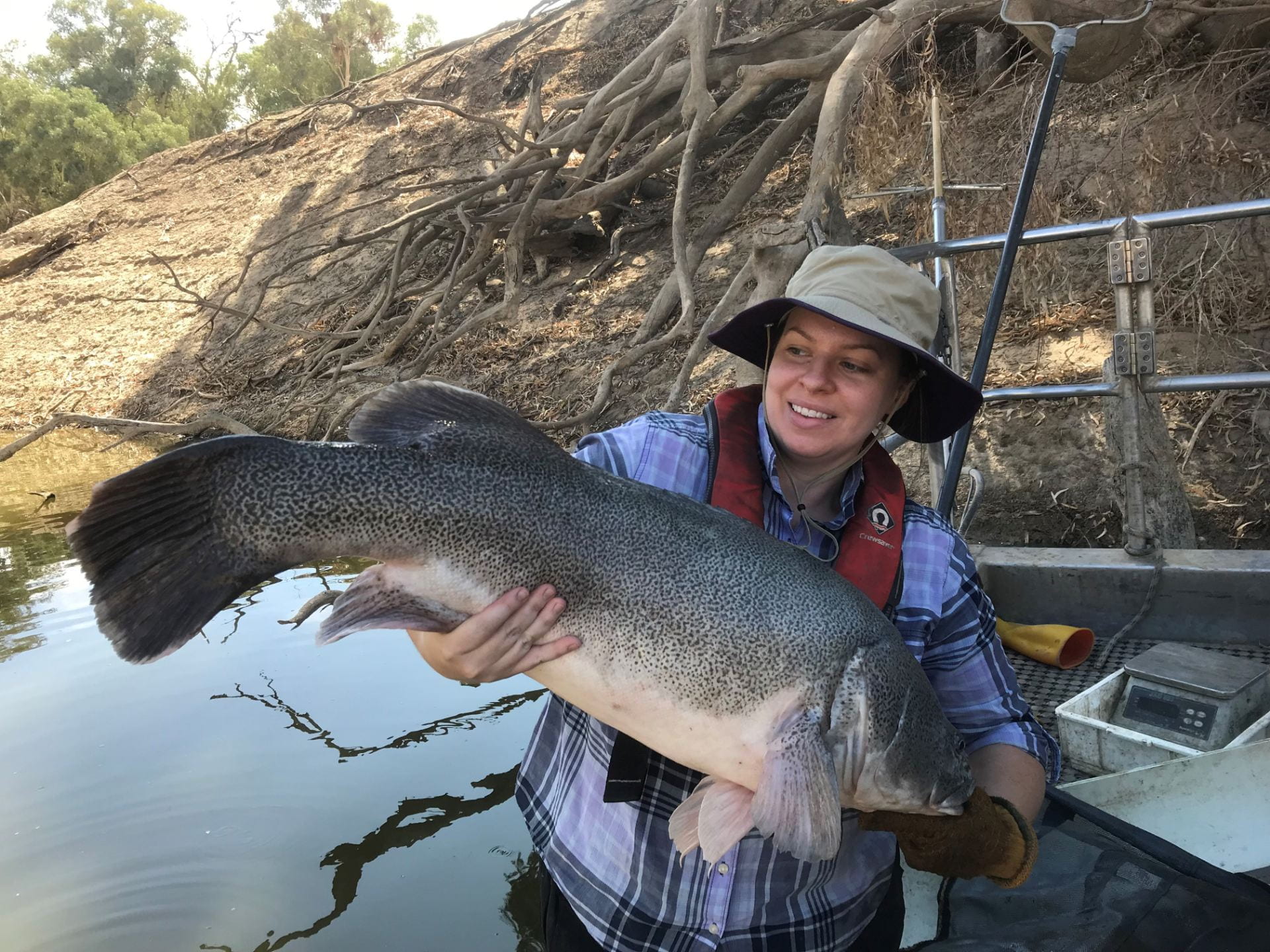Relocating from Minnesota to study rivers in outback NSW, UNE physical geography PhD candidate Leah McIntosh admits she was a fish out of water.
“I grew up around the water – there’s so much water in Minnesota. I loved being around it and, as a result, have always been interested in aquatic ecosystems,” she says.
Completing her undergraduate studies in biology in Minnesota and a master’s degree in Texas, Leah found her studies enabled her to keep doing what she really loved – working with and researching living things in water.
A former supervisor suggested Leah continue her studies with a PhD at UNE in Armidale – a place she’d never heard of. Two years later, she has completed two trips to the Barwon-Darling River in outback NSW – in September last year and the end of March this year, accompanying a team from the NSW Department of Primary Industries Fisheries Research during their fish population surveys.
“It’s definitely the most remote place I’ve been,” she says.
“There is obviously a lot of pressure on the environment at the moment, which was noticeably more desolate on the second trip compared to the first. But the amazing thing for me was seeing that things were surviving in these really harsh conditions.”
Leah says the preparation and briefings from the Department of Primary Industries were key to her success on the trips – and to getting out of some difficult situations.
“The level of preparation for these trips has been higher than for other similar types of work I’ve done. You have to carry absolutely everything with you, and be prepared to problem-solve.
“There was one day when everything that could go wrong did go wrong – we spent about eight hours on the side of the river in total that day. The trailer got stuck, there were boat problems, we couldn’t fish that day, then the car broke down – but luckily the DPI people are really good at what they do and we were in Bourke by then where we could get help.”
While Leah says her time at the Barwon-Darling River felt a “very, very long way from Minnesota”, her studies into the genetic diversity of fish, river functions and human impact on ecosystems is applicable and important to rivers anywhere.
“One of the components of what I’m trying to do is gain a better understanding of how humans influence ecosystems. Humans are never going to not need water from rivers, and the flow is already highly managed by humans, so we need a better understanding of how this influence affects fish species’ ability to survive.
“It’s important to recognise these fish and other organisms have value in themselves and a right to exist regardless of their value to humans.”



Recent Comments